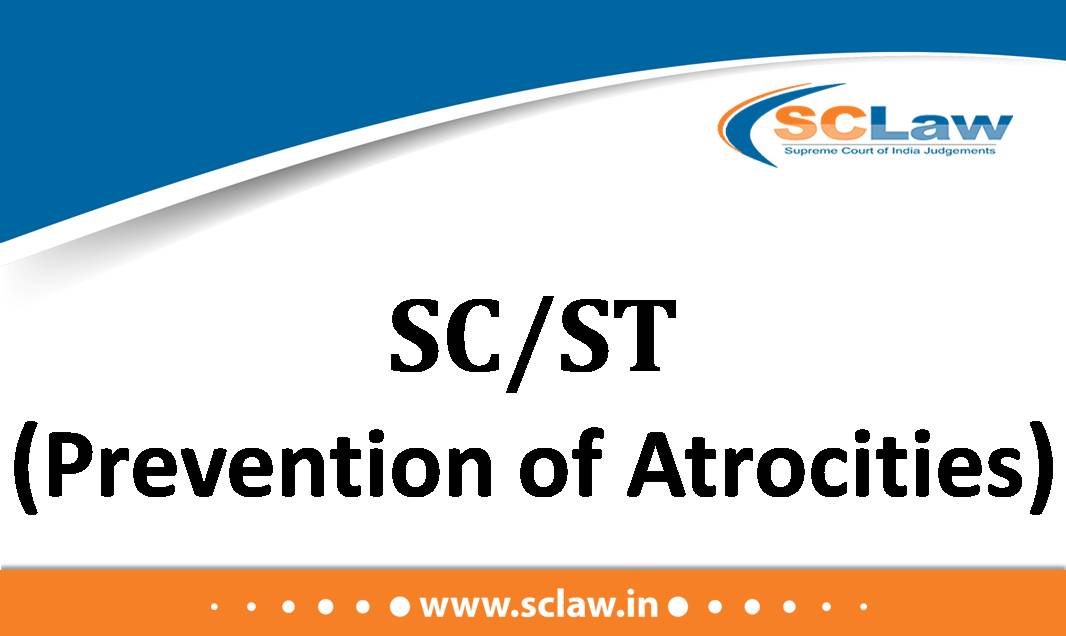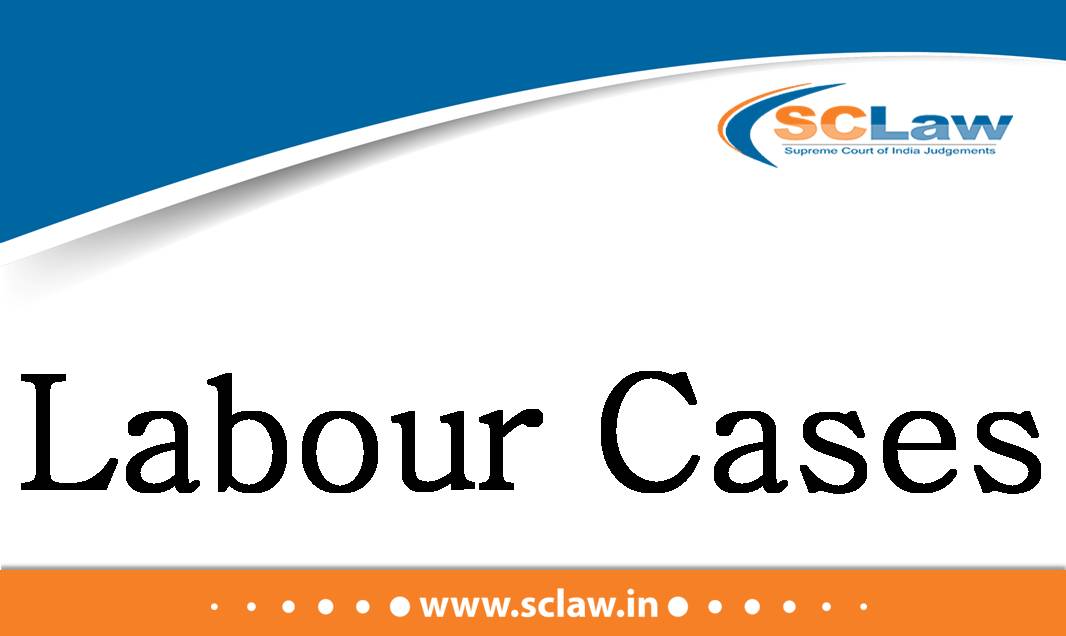Sections 10, 13, 15, 16, 17, 18, 18A, 18B, 19, 20, 23 and 38 of the Unlawful Activities (Prevention) Act, 1967 – HELD the evidence which has already unfolded and above all, the long period of incarceration that the appellant has already undergone, time has arrived when the appellant be enlarged on bail.
SUPREME COURT OF INDIA DIVISION BENCH JAHIR HAK — Appellant Vs. THE STATE OF RAJASTHAN — Respondent ( Before : K.M. Joseph and Hrishikesh Roy, JJ. ) Criminal Appeal No.…
Penal Code, 1860 (IPC) – Section 504 – Scheduled Castes and the Scheduled Tribes (Prevention of Atrocities) Act, 1989 – Section 3(i)(x) – Probation of Offenders Act, 1958 – Sections 3 and 11 – Power of court to release certain offenders after admonition – HELD this Court under the 1958 Act itself can pass an order at this stage – It appropriate that the appellant may be released instead of carrying out the sentence after due admonition
SUPREME COURT OF INDIA DIVISION BENCH KUNTI KUMARI — Appellant Vs. THE STATE OF JHARKHAND — Respondent ( Before : S. Abdul Nazeer and Vikram Nath, JJ. ) Criminal Appeal…
Penal Code, 1860 (IPC) – Section 307 – Attempt to murder – Merely because a long period has lapsed by the time the appeal is decided cannot be a ground to award the punishment which is disproportionate and inadequate – High Court order set aside
SUPREME COURT OF INDIA DIVISION BENCH STATE OF RAJASTHAN — Appellant Vs. BANWARI LAL AND ANOTHER — Respondent ( Before : M.R. Shah and B.V. Nagarathna, JJ. ) Criminal Appeal…
Practices and Rules – Dismissal of appeal without reasoning – Impugned order passed by the High Court is a non-speaking and nonreasoned order and even the submissions on behalf of the revenue are not recorded, the impugned order passed by the High Court dismissing the appeal is unsustainable – Matter is remanded to the High Court
SUPREME COURT OF INDIA DIVISION BENCH THE PRINCIPAL COMMISSIONER OF INCOME TAX-1 — Appellant Vs. M/S. BAJAJ HERBALS PRIVATE LIMITED — Respondent ( Before : M.R. Shah and B.V. Nagarathna,…
Uttar Pradesh State Universities Act, 1973 – Sections 16 and 17 – State Government is not bound by any direction issued by the Central Government which would at worst be mandatory to the Central Universities and the Central Government Colleges receiving funds – Thus, any such decision would obviously be directory to State Government Colleges and Universities, being in the nature of a mere recommendation
SUPREME COURT OF INDIA DIVISION BENCH STATE OF UTTARAKHAND — Appellant Vs. SUDHIR BUDAKOTI AND OTHERS — Respondent ( Before : Sanjay Kishan Kaul and M.M. Sundresh, JJ. ) Civil…
Delhi Rent Control Act, 1958 – Section 25B(8) – HELD the mere existence of the other properties which are, in fact, denied by the appellant would not enure to the benefit of the respondent in the absence of any pleadings and supporting material before the learned Rent Controller to the effect that they are reasonably suitable for accommodation. embargo under the Enemy Property Act would not be made applicable to the properties in question.
SUPREME COURT OF INDIA DIVISION BENCH ABID-UL-ISLAM — Appellant Vs. INDER SAIN DUA — Respondent ( Before : Sanjay Kishan Kaul and M.M. Sundresh, JJ. ) Civil Appeal No. 9444…
Punjab Village Common Lands (Regulation) Act, 1961, as inserted by Haryana Act No. 9/1992 -The entire land reserved for common purposes by applying pro-rata cut had to be utilized by the Gram Panchayat for the present and future needs of the village community and that no part of the land can be re-partitioned amongst the proprietors.
SUPREME COURT OF INDIA DIVISION BENCH THE STATE OF HARYANA THROUGH SECRETARY TO GOVERNMENT OF HARYANA — Appellant Vs. JAI SINGH AND OTHERS — Respondent ( Before : Hemant Gupta…
It is a fundamental principle of law that a party who is in enjoyment of an interim order, is bound to lose the benefit of such interim order when the ultimate outcome of the case goes against him. HELD in view of the efflux of time and taking into account the fact that few employees are now no more, we direct the Management not to effect any recovery, if payment has already been made to any of the respondents or their families.
SUPREME COURT OF INDIA DIVISION BENCH CHAIRMAN-CUM-MANAGING DIRECTOR FERTILIZER CORPORATION OF INDIA LIMITED AND ANOTHER — Appellant Vs. RAJESH CHANDRA SHRIVASTAVA AND OTHERS — Respondent ( Before : Hemant Gupta…
A consumer invoking the jurisdiction of the Commission can seek such reliefs as he/she considers appropriate. A consumer can pray for refund of the money with interest and compensation. The consumer could also ask for possession of the apartment with compensation. The consumer can also make a prayer for both in the alternative.
SUPREME COURT OF INDIA FULL BENCH EXPERION DEVELOPERS PVRIVATE LIMITED — Appellant Vs. SUSHMA ASHOK SHIROOR — Respondent ( Before : Uday Umesh Lalit, S. Ravindra Bhat and Pamidighantam Sri…
Land Acquisition Act, 1894 – Section 4 – Determination of compensation – Generally the sale instances with respect to small plots/parcels of land are not comparable to a large extent of land for the purpose of determining the compensation.
SUPREME COURT OF INDIA DIVISION BENCH UNION OF INDIA — Appellant Vs. PREMLATA AND OTHERS — Respondent ( Before : M.R. Shah and B.V. Nagarathna, JJ. ) Civil Appeal Nos.…















